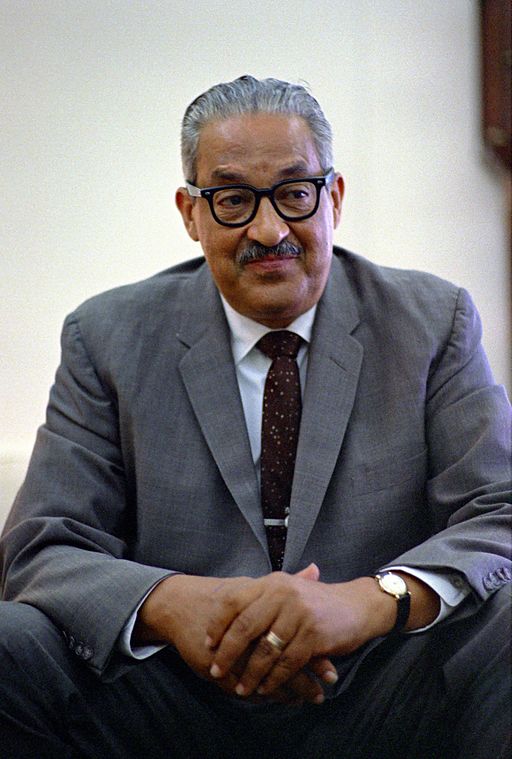In Austin v. Michigan Chamber of Commerce, 494 U.S. 652 (1990), the Supreme Court upheld a Michigan law prohibiting nonprofit corporations from using general treasury fund revenues for independent candidate expenditures in state elections.
The Court overruled Austin in 2010 in Citizens United v. Federal Election Commission.
Michigan said nonprofits couldn’t use general funds for political purposes
Section 54(1) of the Michigan Campaign Finance Act of 1979 only permitted nonprofit corporations to expend segregated funds amassed for entirely political purposes. The Michigan Chamber of Commerce, a nonprofit corporation, challenged the statute, arguing that the limitation violated such corporations’ First Amendment rights.
Court said law didn’t violate the First Amendment
The Court, in an opinion authored by Justice Thurgood Marshall, held that although the provision burdened the chamber’s political expression, the burden was constitutionally justified by the compelling state interest of Michigan, which had narrowly tailored a mechanism to achieve that interest.
In its pleadings, Michigan had justified the operation of the statute by citing the state’s interest in preventing corruption or the appearance thereof. The state had provided corporate entities with substantial statutory advantages, such as limited liability, perpetual life, and favorable tax treatment.
These advantages, Michigan argued, could allow corporations to exercise undue influence on the political process.
The Chamber of Commerce countered, contending that independent expenditures were less likely than direct outlays to implicate the concerns raised by the state.
In the end, the Court majority decided that Michigan was rightly concerned about the “immense aggregations of wealth that are accumulated with the help of the corporate form and have little or no correlation to the public’s support for the corporation’s political ideas.”
Court said law was narrowly tailored
The Court next considered whether the act was sufficiently narrowly tailored to its proffered goal.
Marshall held the act was “precisely targeted” at its stated goal while still allowing corporations to express political views. Because the act allowed corporations to express political ideas by making independent expenditures through a segregated fund, corporate speech could still accurately reflect the underlying views of the corporation’s membership.
Chamber of Commerce argued they had special status as nonprofits
The Chamber of Commerce had argued that the statute was overly inclusive, as its nonprofit status should have led to consideration of the regulation under the standards adopted in Federal Election Commission v. Massachusetts Citizens for Life (1986).
There, the Court invalidated a restriction placed on an antiabortion nonprofit organization.
Court said Chamber consisted of business members
Justice Marshall disagreed. Instead, he argued that the Chamber was qualitatively distinct from Massachusetts Citizens for Life (MCFL).
- First, although the MCFL’s express purpose was the promotion of political ideas, the chamber had various purposes, several of which were nonpolitical.
- Second, although the MCFL and the chamber both lacked shareholders, Justice Marshall noted that chamber members were more like shareholders and less like MCFL members because they were reluctant to use the threat of resignation as a mechanism to constrain the leadership of the chamber.
- Third, the Austin Court majority noted that the MCFL decision was predicated upon the organization’s independence from business corporations. The Chamber of Commerce, although not itself a business corporation, consisted of membership, three-fourths of which were, in fact, business corporations.
The Court also rejected the chamber’s final argument that the statute was not inclusive enough because it failed to reach labor unions. Marshall asserted that differential treatment on behalf of the state was justified, as unions do not receive the same statutory advantages as corporate entities.
Austin overruled a decade later in Citizens United case
The Supreme Court overruled Austin in Citizens United v. Federal Election Commission, 558 U.S. 310 (2010).
In a 5-4 majority decision written by Justice Anthony Kennedy, the Court invalidated a law prohibiting corporations and unions from making independent expenditures on political campaigns within 30 days of a primary election, in this case a negative documentary on Hillary Clinton.
Kennedy argued that Austin had deviated from prior precedents and that the government “cannot restrict political speech based on the speaker’s corporate identity.”
This article was originally published in 2009 and updated in 2017. Daniel M. Katz is a Professor of Law at the Chicago-Kent College of Law.

